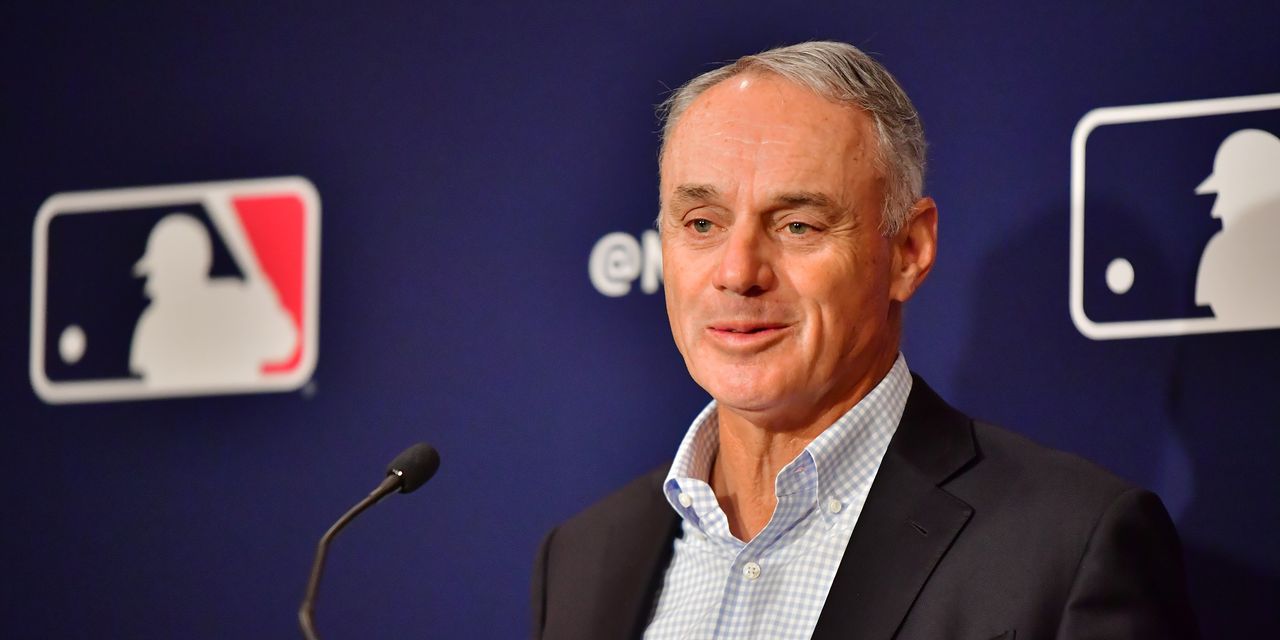““I kind of reject the premise … that minor league players are not paid a living wage.””
That was Major League Baseball Commissioner Rob Manfred discussing the salaries of minor league baseball players before Tuesday night’s MLB All-Star Game.
Minor leaguers are paid much less than the major league players, often earning under $15,000 a season — which is less than most jobs in America, according to data from the U.S. Census Bureau, and only a few grand over the poverty line. But Manfred told the Baseball Writers’ Association of America that he disagreed with “the premise of the question” that players in the minors don’t get paid livable wages.
See also: Trump tells golfers to ‘take the money’ from LIV Golf or ‘pay a big price’
“I think that we’ve made real strides in the last few years in terms of what minor league players are paid, even putting to one side the signing bonuses that many of them have already received,” Manfred said. Plus, “they receive housing, which obviously is another form of compensation.”
Some people identifying as former minor leaguers on Twitter
TWTR,
and whose names match former minor league prospects on the MLB’s website, disagreed.
The average salary for a major leaguer in the 2022 season was $4.4 million, according to a study of baseball contracts by the AP, and the median salary was in the $1.2 million ballpark.
The MLB raised minimum salaries for minor league players in 2021, increasing pay for players in Single-A from $290 to $500 per week, Double-A from $350 to $600 and Triple-A from $502 to $700 over the roughly five-month season. Minor leaguers are only paid for the duration of the baseball season, which can be as long as five months. A minor league player earning the maximum $700-per-week compensation for approximately 22 weeks would earn $15,400.
It’s important to note that a small number of amateur baseball players who are selected near the top of the MLB Draft may also earn additional signing bonuses while playing in the minor league system. But such large bonuses, like the $5.2 million signing bonus that pitcher Kumar Rocker received this week, are reserved for only some of the top players. And a majority of players in the minor leagues do not have such a luxury.
So what’s the difference between the leagues? Minor league baseball teams are franchises made up of players under contract to — and controlled by — their Major League Baseball club. All 30 MLB teams have a multi-team minor league system that funnels players up to the majors.
According to ESPN, a majority of minor leaguers earn somewhere between $4,800 and $14,700 per year — and the 2021 poverty guideline outlined by the Assistant Secretary for Planning and Evaluation (ASPE), the principal advisor to the Secretary of the U.S. Department of Health and Human Services, was $12,880 for a single individual.
And while some of the players’ financial compensation may be above the poverty line, a few minor leaguers noted that they are required to be “at work” for nearly all the time they’re in season. So that could include waking up at 5 a.m. and being on a bus for 10 hours before playing in a game at night, not to mention batting practices and other work-related tasks throughout the day and on weekends.
Unlike MLB players, minor league baseball participants are not currently unionized.
See also: The typical S&P 500 CEO made 324 times more than the median-paid worker last year
In July, a federal class-action lawsuit filed by minor league players who sought compensation for minimum wage and overtime from the MLB was settled by both parties, ending in a $185 million payment to thousands of minor league players, according to the Associated Press.
“As a former minor league baseball player, I’ve seen first-hand the financial struggle players face while earning poverty-level wages — or no wages at all — in pursuit of their major league dream,” Garrett Broshuis, an attorney who worked on the suit, said in a statement. “For the better part of a decade, it has been my honor to help lead this fight and to shine a light on the unfair labor practices that have long plagued America’s pastime.”
In February, Manfred claimed that owning an MLB team is not as profitable as fans may think, claiming that investing in an index fund that tracks the S&P 500
SPX,
is a better investment than owning a sports franchise. This drew some criticism at the time.
MLB franchise valuations have outpaced gains from the stock market, an analysis by market-data company PitchBook indicated. But indeed, owning a sports team comes with a variety of other factors, including cost fluctuations surrounding player salary and stadium expenses that affect the bottom line.
The Associated Press contributed to this report.
